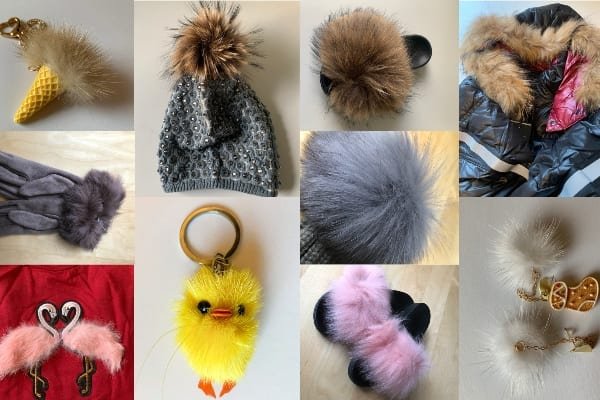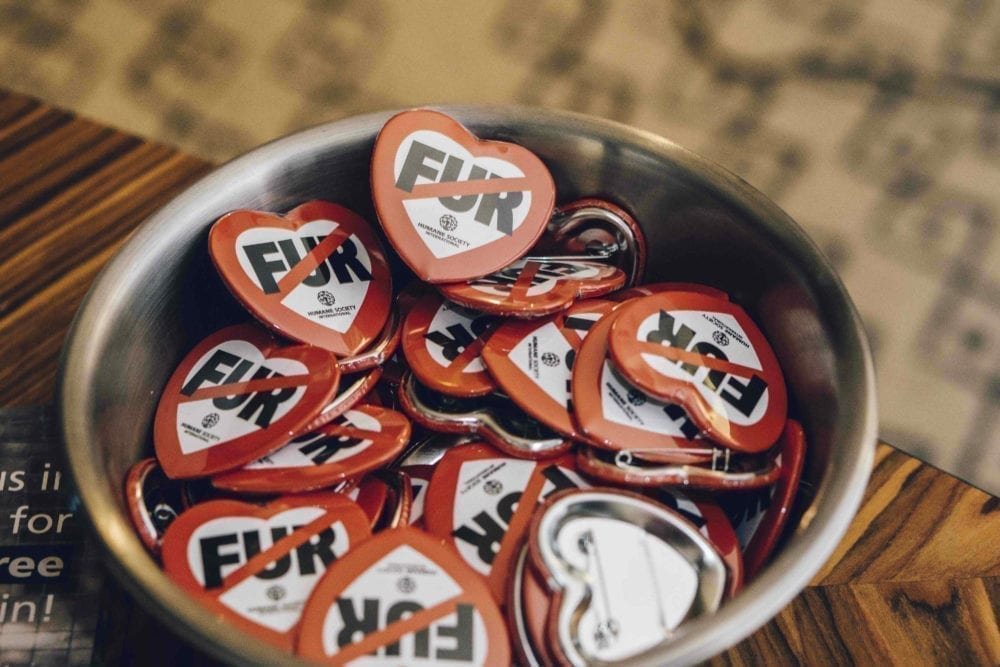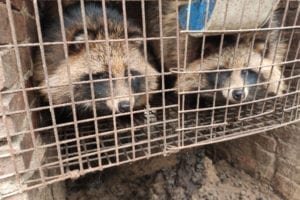E-shoppers vulnerable
Online fashion shopping is more popular than even, particularly with under-25s who are looking for the latest trends at affordable prices. It’s also a safe and convenient way to shop during Covid-19 restrictions.
But unsuspecting e-shoppers are particularly vulnerable to misleading marketing when items are misleadingly described as ‘faux fur’ or synthetic material such as acrylic, and come with relatively cheap price tags.
While many consumers wrongly assume a cheap price tag indicates faux fur, the tragic truth is that conditions on fur farms are so poor – with animals often having to endure appalling deprivation – that real animal fur can be produced as cheaply as, or even more cheaply than, faux fur.
Retailers have a responsibility, under the 2008 Consumer Protection from Unfair Trading Regulations, not to mislead their customers in the sale of animal/fake fur.
However, despite HSI/UK instigating numerous complaints to the Advertising Standards Authority and Trading Standards, it appears that the penalties are too weak to act as a deterrent to stop some retailers misleading shoppers into buying a product that most would actively avoid.
HSI/UK believes the only way to prevent real fur sneaking into British closets is for the UK government to implement a ban on the sale of fur.
Closing British borders to the cruel and unnecessary fur trade would significantly reduce the risk of real fur being sold as fake, and appropriate penalties to enforce the law would emphasise to retailers the importance of verifying that overseas suppliers provide them only with faux fur.
Fur bans
HSI/UK has been exposing the sale of fake faux fur for many years. Retailers previously implicated include eBay, T.K. Maxx, Boohoo, Amazon, Romwe, Not On The High Street, House of Fraser, Missguided, ASOS and Forever 21.
Numerous retailers have been assisted in staff training – in retail and along the supply chain – to ensure no-fur policies are adhered to.
An estimated 60 million mink are farmed for their fur in 24 countries around the world, with the top three production countries China (20.6million mink), Denmark (17.6million mink) and Poland (5 million mink) in 2018.
Fur farming has been banned across the UK since 2003, and has been banned (and/or is in the process of being phased out) in Austria, Belgium, Bosnia-Herzegovina, Czech Republic, Croatia, Macedonia, the Netherlands, Norway, Luxembourg, Serbia, Slovakia and Slovenia.
Most recently the government in Hungary declared a ban on the farming of animals including mink and foxes. France committed to phase out mink farms by 2025, and the Irish government has made a commitment to end fur farming.
Bulgaria, Estonia, Lithuania, Montenegro, Poland and Ukraine are also presently considering bans on fur farming, and in Finland the majority party of the coalition government just announced its support for a ban on fur farms.
In the United States, California became the first US state to ban fur sales in 2019 following similar bans in cities including Los Angeles, San Francisco, Berkeley and West Hollywood.
In 2020, legislators in Hawaii and Rhode Island introduced fur sales ban proposals, as have cities in Minnesota and Massachusetts.
 Play Video about This Rock Might Just Save The World
Play Video about This Rock Might Just Save The World Play Video about Play 2 hours of rock
Play Video about Play 2 hours of rock Play Video about Play 2 hours of brook
Play Video about Play 2 hours of brook Play Video about Play 2 hours of sheep
Play Video about Play 2 hours of sheep















































